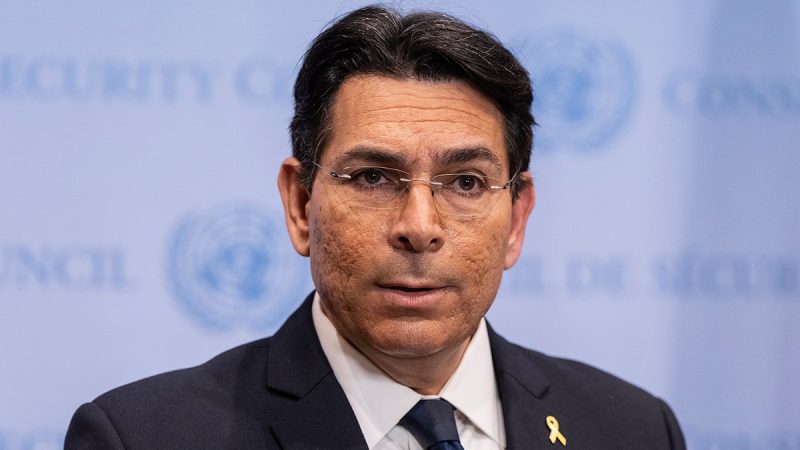Israel’s UN Ambassador Response to Iran Will Be Very Painful
In a recent interview, Israel’s ambassador to the United Nations, Gilad Erdan, delivered a stern warning to Iran, stating that Israel’s response to any threatened attack by Iran would be very painful. This statement underscores the escalating tensions between the two countries and the wider geopolitical ramifications of their longstanding rivalry.
Erdan’s comments come in the wake of Iranian Supreme Leader Ayatollah Ali Khamenei’s threat to avenge the killing of the country’s top nuclear scientist, Mohsen Fakhrizadeh, whom Iran blames on Israel. The assassination of Fakhrizadeh is just the latest episode in a series of shadowy covert operations that have characterized the long-running conflict between the two nations.
Israel has long viewed Iran as its primary regional adversary, citing Tehran’s support for proxy groups like Hezbollah and its nuclear ambitions as significant threats to its security. Iran, on the other hand, sees Israel as a colonial power and has called for its destruction on numerous occasions.
The exchange of threats and provocations between Israel and Iran has created a volatile situation in the Middle East, with the potential for a wider conflict that could draw in other regional actors. The involvement of the United Nations adds an extra dimension to these tensions, as both Israel and Iran seek to garner international support for their respective positions.
Ambassador Erdan’s warning of a very painful response to Iran’s provocations reflects Israel’s determination to defend itself against any perceived threats. The Israeli government has repeatedly stated that it will not tolerate Iran’s hostile actions and will take whatever measures necessary to protect its citizens.
In response, Iran has indicated that it will retaliate against any Israeli aggression, further escalating the cycle of violence between the two countries. The prospect of a direct military confrontation between Israel and Iran raises serious concerns about the stability of the region and the potential impact on global security.
As the situation continues to unfold, the international community will be closely monitoring the actions of both Israel and Iran, seeking to prevent any further escalation that could lead to a full-scale conflict. The role of the United Nations in mediating between the two countries and promoting diplomatic solutions will be crucial in de-escalating tensions and preventing a dangerous confrontation.
In conclusion, the exchange of threats and warnings between Israel and Iran highlights the deep-seated animosities and complex geopolitical dynamics that define their relationship. The specter of a military clash between the two nations remains a very real possibility, underscoring the urgent need for diplomatic efforts to defuse the situation and prevent a wider conflagration in the Middle East.

